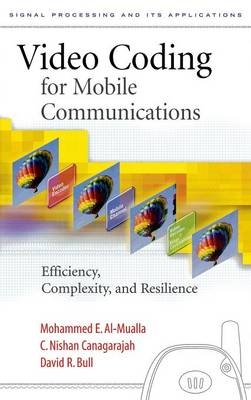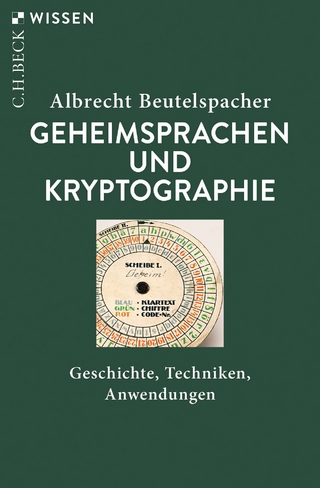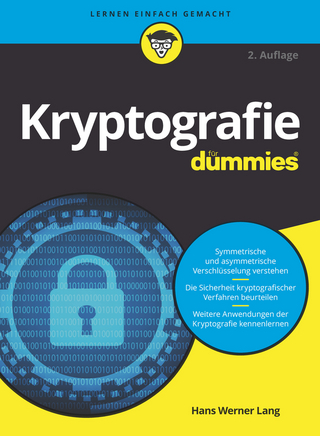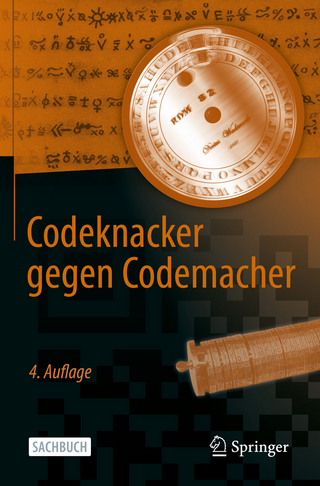
Video Coding for Mobile Communications
Academic Press Inc (Verlag)
978-0-12-053079-3 (ISBN)
- Titel ist leider vergriffen;
keine Neuauflage - Artikel merken
In order for wireless devices to function, the signals must be coded in standard ways so that the sender and the receiver can communicate. This area of video source coding is one of the key challenges in the worldwide push to deliver full video communications over wireless devices. Video Coding for Mobile Communications reviews current progress in this field and looks at how to solve some of the most important technology issues in the months and years ahead.
The vision of being able to communicate from anywhere, at any time, and with any type of information is on its way to becoming reality. This natural convergence of mobile communications and multimedia is a field that is expected to achieve unprecedented growth and commercial success. Current wireless communication devices support a number of basic multimedia services (voice, messages, basic internet access), but have coding problems that need to be solved before "real-time" mobile video communication can be achieved.
Nishan Canagarajah, Ph.D., has been a lecturer in Digital Signal Processing at Bristol since March 1994. Prior to this he was employed as a Research Assistant at Bristol investigating DSP aspects of mobile radio receivers. He has a BA in engineering and a Ph.D., both from the University of Cambridge. His current research interests include image and video coding, speech processing, non-linear filtering techniques and the application of signal processing to medical electronics. He has worked closely with several companies in the fields of signal processing and image coding and has published numerous journal and conference papers in these areas. Dr. Canagarajah is actively involved in the UK VCE in Digital Broadcasting and Multimedia Technology. He is a member of IEE Professional Group E5 (Signal Processing). Professor David R. Bull PhD, FIET, FIEEE, CEng. obtained his PhD from the University of Cardiff in 1988. He currently holds the Chair in Signal Processing at the University of Bristol where he is head of the Visual Information Laboratory and Director of Bristol Vision Institute, a group of some 150 researchers in vision science, spanning engineering, psychology, biology, medicine and the creative arts. In 1996 David helped to establish the UK DTI Virtual Centre of Excellence in Digital Broadcasting and Multimedia Technology and was one of its Directors from 1997-2000. He has also advised Government through membership of the UK Foresight Panel, DSAC and the HEFCE Research Evaluation Framework. He is also now Director of the UK Government’s new MyWorld Strength in Places programme. David has worked widely across image and video processing focused on streaming, broadcast and wireless applications. He has published over 600 academic papers, various articles and 4 books and has given numerous invited/keynote lectures and tutorials. He has also received awards including the IEE Ambrose Fleming Premium for his work on Primitive Operator Digital Filters and a best Paper Award for his work on Link Adaptation for Video Transmission. David’s work has been exploited commercially and he has acted as a consultant for companies and governments across the globe. In 2001, he co-founded ProVision Communication Technologies Ltd., who launched the world’s first robust multi-source wireless HD sender for consumer use. His recent award-winning and pioneering work on perceptual video compression using deep learning, has produced world-leading rate-quality performance.
1. Introduction to Mobile Video Communications
Part I: Introduction to Video Coding 2. Video Coding Fundamentals 3. Video Coding: Standards
Part II: Coding Efficiency 4. Basic Motion Estimation Techniques 5. Warping-Based Motion Estimation Techniques 6. Multiple-Reference Motion Estimation Techniques
Part III: Computational Complexity 7. Reduced-Complexity Motion Estimation Techniques 8. The Simplex Minimization Search
Part IV: Error Resilience 9. Error-Resilience Video Coding Techniques 10. Error Concealment Using Motion Field Interpolation Appendix A: Fast Block-Matching Algorithms
| Erscheint lt. Verlag | 13.5.2002 |
|---|---|
| Reihe/Serie | Signal Processing and Its Applications |
| Verlagsort | San Diego |
| Sprache | englisch |
| Maße | 152 x 229 mm |
| Gewicht | 620 g |
| Themenwelt | Informatik ► Theorie / Studium ► Kryptologie |
| Technik ► Nachrichtentechnik | |
| ISBN-10 | 0-12-053079-1 / 0120530791 |
| ISBN-13 | 978-0-12-053079-3 / 9780120530793 |
| Zustand | Neuware |
| Haben Sie eine Frage zum Produkt? |
aus dem Bereich


